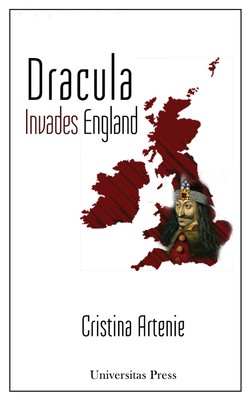
- We will send in 10–14 business days.
- Publisher: Universitas Press
- ISBN-10: 0993995101
- ISBN-13: 9780993995101
- Format: 12.7 x 20.3 x 1 cm, minkšti viršeliai
- Language: English
- SAVE -10% with code: EXTRA
Dracula Invades England (e-book) (used book) | bookbook.eu
Reviews
Description
In the nineteenth century, Dracula's native lands had become a neo-colony of the British Empire and the Lower Danube was controlled by the British. This book makes the case for a postcolonial reading of Dracula by offering a fresh perspective into the historical and biographical context of the genesis of the novel, as well as an analysis of the personality of the historical character chosen by Stoker for his vampire Count. It is an inquiry into the circumstances that led to the publication of Bram Stoker's 1897 novel, and into the far-reaching consequences of that publication. It is, in other words, a study of what made Dracula possible and of what was made possible by Dracula.
EXTRA 10 % discount with code: EXTRA
The promotion ends in 24d.00:31:30
The discount code is valid when purchasing from 10 €. Discounts do not stack.
- Publisher: Universitas Press
- ISBN-10: 0993995101
- ISBN-13: 9780993995101
- Format: 12.7 x 20.3 x 1 cm, minkšti viršeliai
- Language: English English
In the nineteenth century, Dracula's native lands had become a neo-colony of the British Empire and the Lower Danube was controlled by the British. This book makes the case for a postcolonial reading of Dracula by offering a fresh perspective into the historical and biographical context of the genesis of the novel, as well as an analysis of the personality of the historical character chosen by Stoker for his vampire Count. It is an inquiry into the circumstances that led to the publication of Bram Stoker's 1897 novel, and into the far-reaching consequences of that publication. It is, in other words, a study of what made Dracula possible and of what was made possible by Dracula.


Reviews